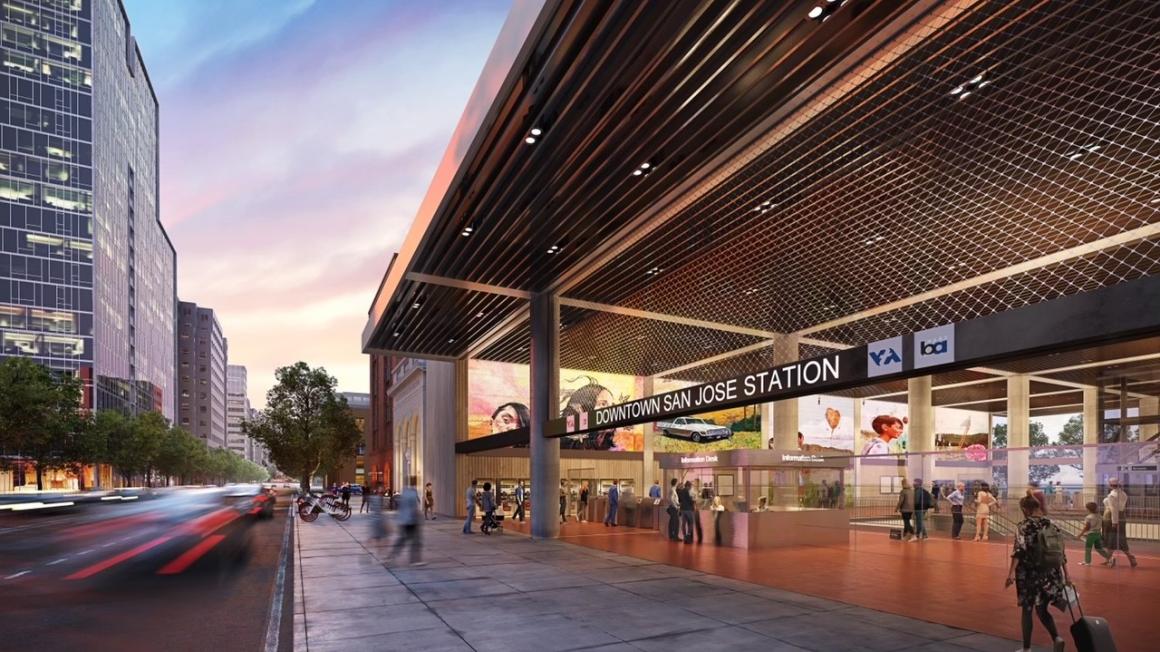Tunnel Easements: Why, Where and How
Extending BART into the heart of Silicon Valley will ultimately enhance mobility in the Bay Area, create thousands of jobs, spur transit-oriented communities, and improve the environment. Building transit infrastructure in denser urban areas typically requires acquiring easements or full acquisitions of private property. As this is a federal project, VTA strictly adheres to stringent requirements for the acquisition process for public projects.
Real estate considerations were made at every stage of project planning for the Project. During the early planning phase, an extensive state and federal environmental review process was conducted. Owners and occupants of properties within and near the Project’s alignment were notified when the 2016 Draft Supplemental Environmental Impact Statement/Subsequent Environmental Impact Report (SEIS/SEIR) was released. The SEIS/SEIR analyzed, evaluated, and disclosed the environmental impacts of the Project and identified mitigation to be implemented during construction and operation of the Project. The environmental process included a noise and vibration evaluation and identified mitigation, where required. The circulation of the Draft SEIS/SEIR provided opportunities for the public to comment on the planned project. VTA, as the project sponsor and state lead agency, and FTA, as the federal lead agency, responded to and addressed comments received. These efforts are documented in the 2018 VTA Board-certified Final SEIS/SEIR, and for which the Federal Transit Administration approved via a Record of Decision.
The Board-approved Project is utilizing a single-bore tunnel. While most of the tunnel is located under public streets, there are segments that will pass under private property. For these properties, VTA requires underground easement rights to construct and operate the Project. VTA engages with those owners by providing them with information about the easements and addressing any issues, to the extent possible.
Understandably, property owners have concerns about noise and vibration that could occur under their homes during the tunnel boring and construction. VTA has provided owners of properties above the tunnel with information about how noise and vibrations are mitigated and monitored. In addition, VTA, as the project sponsor, is responsible for any damage that might occur during construction as a result of the Project. As stewards of taxpayer funds, VTA cannot be liable for claims or disputes that are unrelated to the Project.
We can appreciate the frustration that property owners associated with the project experience. VTA staff moves forward with recommendations to the VTA Board to authorize initiation of an eminent domain action only when agreement with a property owner cannot be reached, which may result in delay and extra costs that imperil the greater public benefits of the Project. VTA’s Board has the sole discretion to authorize VTA to initiate the eminent domain process. The eminent domain process is a legal process in which the property owner has (1) the right to challenge VTA’s ability to acquire the property; and (2) a Constitutional right to have a jury of their peers determine the amount that VTA is required to pay the property owner. Even during this process, VTA and the property owner may continue to negotiate.
There are situations in which a property owner is not objecting to VTA acquiring the easement, and the sole issue is the amount of compensation to be paid for the easement. In those situations, the property owner may enter into a Possession and Use Agreement with VTA, which allows the parties additional time to continue to negotiate on compensation, while also providing the Project access to the tunnel easement so construction may proceed. VTA does not threaten legal action and is statutorily prohibited from doing so for purposes of forcing a settlement.
Pursuant to statutory law, VTA makes offers of just compensation that can be no less than the fair market value determined by an independent appraiser. Further, and as also established by law, where VTA makes an offer to a property owner to purchase a particular property interest required for a public project, VTA will pay up to $5,000 for a property owner to order their own independent appraiser to value the property
VTA is committed to working with property owners and will engage in good-faith negotiations in efforts to avoid litigation, as demonstrated by much success in reaching agreements with owners.
